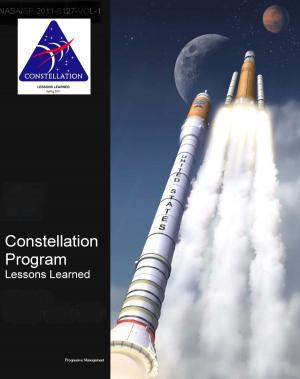The Efficacy of Cognitive Shock: Systemic Cognitive Fragmentation, Void Between Perceived and Presented, Reality as Perception, Mental Voids, Byproducts of Surprise, Deception, Strategic Paralysis
Nonfiction, History, Military, Strategy, Health & Well Being, Psychology, Cognitive Psychology| Author: | Progressive Management | ISBN: | 9781370720200 |
| Publisher: | Progressive Management | Publication: | February 25, 2017 |
| Imprint: | Smashwords Edition | Language: | English |
| Author: | Progressive Management |
| ISBN: | 9781370720200 |
| Publisher: | Progressive Management |
| Publication: | February 25, 2017 |
| Imprint: | Smashwords Edition |
| Language: | English |
This excellent report has been professionally converted for accurate flowing-text e-book format reproduction. Western militaries orient their understanding of depth on the physically quantifiable aspects of time and space. Yet, new understanding of the human mind across multiple disciplines proves the more important aspect of depth is cognitive in nature. Perceptions of reality differ between cultural groups and their associated institutions, to include their militaries. Expectations of operations being perceived the same way as those who plan them or that of static doctrinal understandings fail to account for cognition and are relegated to resource intensive actions to force one's will on their adversary. This paper presents a holistic understanding of how to exploit cognitive depth with reduced resource requirements through the efficacy of cognitive shock. It uses a multiple vantage approach with the disciplines of philosophy, cognitive neuro-science, psychology, complexity, and military theory to provide unique perspectives into the subjects of depth and cognition. This paper argues that cognitive shock provides the most effective way to exploit cognitive depth and the most efficient way to achieve strategic aims. The result is the theory of Systemic Cognitive Fragmentation (SCF) consisting of the following four critical elements needed for the efficacious exploitation of depth: systemic thought, novelty in action, cognitive swarming, and deception. Ultimately, this paper and the theory of SCF provide a holistic appreciation of cognitive depth that allows military practitioners to operationalize cognitive shock against any given rival while experiencing diverse ecologies.
Any understanding of physical depth is a matter of perception and interpretation. That is not to say there are no quantitative characteristics to time and space. Physical distance can be measured in kilometers, nautical miles, inches, or centimeters. Time elapses in seconds, minutes, hours, or days. However, in spite of being able to achieve the most exact measurements, people interpret and exploit both time and space differently owing to differences in social-cultural norms. For instance, the separation between two neighborhoods within a city may be negligible, as each area can physically blend into the next in ways that are not necessarily entirely perceptible. Chinatown and Little Italy provide examples of ethnically oriented communities within New York City that are visually distinct, yet have far more divergent conceptions of what is expected, appropriate, and necessary functioning within each - despite their spatially contiguity. While waiting thirty minutes at a restaurant to receive food may seem reasonable, waiting the same amount in a drive-thru is not. Technological advances over the past decade have further affected perceptions of time and space, and the implications of those for the fundamental expectations and behaviors of diverse social groupings. French philosopher Paul Virilio recognized, with the creation of the television and its programming, "everything is always already there, offered to view in the immediacy of an instantaneous transmission." Viewers watch and digest events occurring in a location on the other side of the world within seconds, ensuring "the greatest distance no longer precludes perception." Despite the near instantaneous reception of the information, the television viewer will process events different than those physically experiencing them. The manner in which time and space are processed, interpreted, and utilized remains cognitive.
This excellent report has been professionally converted for accurate flowing-text e-book format reproduction. Western militaries orient their understanding of depth on the physically quantifiable aspects of time and space. Yet, new understanding of the human mind across multiple disciplines proves the more important aspect of depth is cognitive in nature. Perceptions of reality differ between cultural groups and their associated institutions, to include their militaries. Expectations of operations being perceived the same way as those who plan them or that of static doctrinal understandings fail to account for cognition and are relegated to resource intensive actions to force one's will on their adversary. This paper presents a holistic understanding of how to exploit cognitive depth with reduced resource requirements through the efficacy of cognitive shock. It uses a multiple vantage approach with the disciplines of philosophy, cognitive neuro-science, psychology, complexity, and military theory to provide unique perspectives into the subjects of depth and cognition. This paper argues that cognitive shock provides the most effective way to exploit cognitive depth and the most efficient way to achieve strategic aims. The result is the theory of Systemic Cognitive Fragmentation (SCF) consisting of the following four critical elements needed for the efficacious exploitation of depth: systemic thought, novelty in action, cognitive swarming, and deception. Ultimately, this paper and the theory of SCF provide a holistic appreciation of cognitive depth that allows military practitioners to operationalize cognitive shock against any given rival while experiencing diverse ecologies.
Any understanding of physical depth is a matter of perception and interpretation. That is not to say there are no quantitative characteristics to time and space. Physical distance can be measured in kilometers, nautical miles, inches, or centimeters. Time elapses in seconds, minutes, hours, or days. However, in spite of being able to achieve the most exact measurements, people interpret and exploit both time and space differently owing to differences in social-cultural norms. For instance, the separation between two neighborhoods within a city may be negligible, as each area can physically blend into the next in ways that are not necessarily entirely perceptible. Chinatown and Little Italy provide examples of ethnically oriented communities within New York City that are visually distinct, yet have far more divergent conceptions of what is expected, appropriate, and necessary functioning within each - despite their spatially contiguity. While waiting thirty minutes at a restaurant to receive food may seem reasonable, waiting the same amount in a drive-thru is not. Technological advances over the past decade have further affected perceptions of time and space, and the implications of those for the fundamental expectations and behaviors of diverse social groupings. French philosopher Paul Virilio recognized, with the creation of the television and its programming, "everything is always already there, offered to view in the immediacy of an instantaneous transmission." Viewers watch and digest events occurring in a location on the other side of the world within seconds, ensuring "the greatest distance no longer precludes perception." Despite the near instantaneous reception of the information, the television viewer will process events different than those physically experiencing them. The manner in which time and space are processed, interpreted, and utilized remains cognitive.















